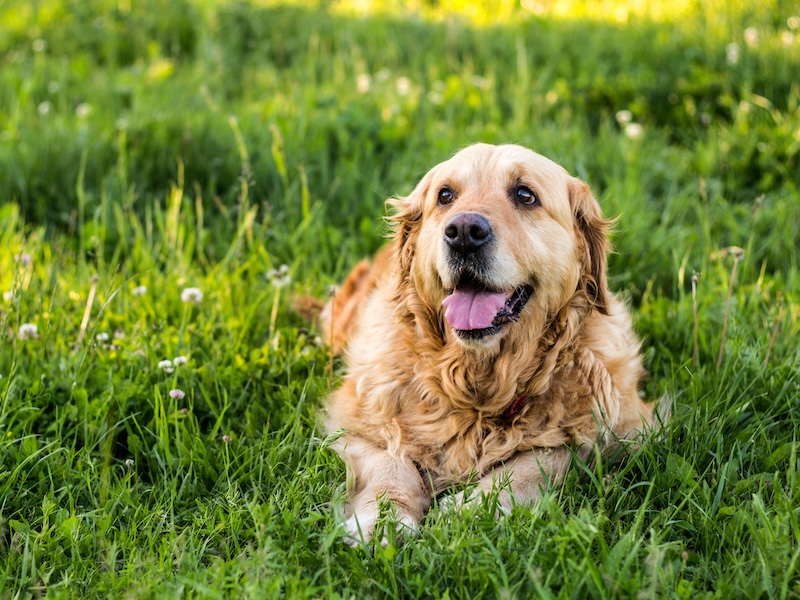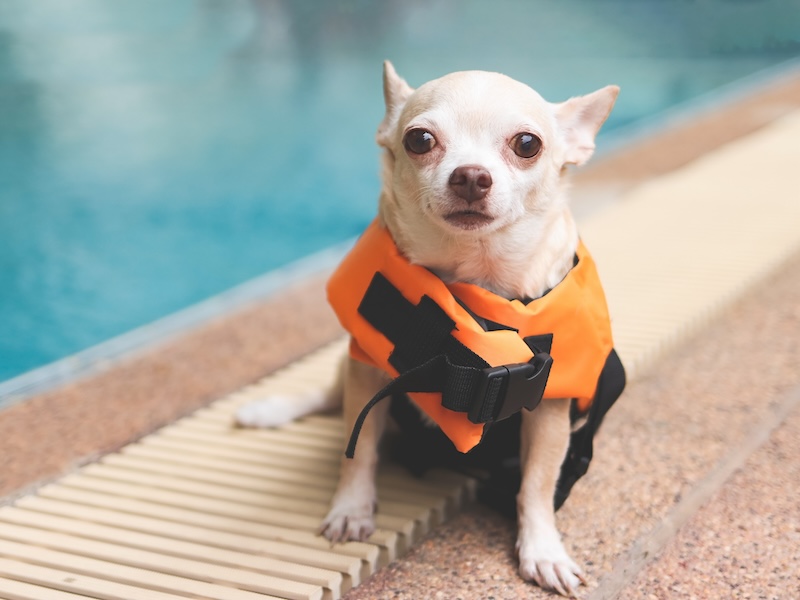In each issue of Expat Living, DR PAULINE TAYLOR of Pets Central answers readers’ questions on their furry friends. Here are tips on how to care for a senior dog, from pet nutrition and exercise to the attention that older dogs can benefit from.
“My Golden Retriever is 10 years old and I want to maximise his time with me; how can I help him have a healthy and beautiful senior life?”
I suggest you get him on a Senior Wellness Programme with your vet and a lifestyle support programme at home. In the meantime, here are some of the measures I recommend.

# Regular vet checks
Many age-related diseases are subtle and easy to miss. Look out for changes in behaviour, energy levels and day-to-day eating, drinking and toileting habits. Regular blood monitoring and imaging (radiographs and ultrasound scans) help to form unique baseline levels for your own pet. That way, as changes happen, your vet can advise on treatments more quickly and suggest other preventive measures.
# Exercise
This should be regular – several times a day. Try shorter, easier walks of 15 to 20 minutes and take note of when your dog tires; don’t push him to exhaustion. Allow plenty of time for exploring areas outside the home with his nose. Sniffing areas is very important for your dog’s memory and mental status. So, be patient on walks and allow enough “sniff time”.
Swimming (or hydrotherapy) is an excellent exercise. I suggest using a life jacket on older dogs so they can enjoy the swim and soak; they can freely move their limbs and get a gentle water massage without getting too tired.
# Pet nutrition
Whether they’re homemade or commercially packaged, many recipes geared towards senior pets exist nowadays. Be mindful of your older dog’s weight, avoid obesity and consider supplements for the joints, skin, heart, liver, kidneys and so on. Also, take care of your dog’s teeth – special diets and toys are available to help keep them clean. If your pet allows, do this daily yourself with a brush. Make the experience positive and fun.
# How to care for a senior dog losing it’s senses
Be aware that hearing, sight and balance deteriorate as dogs age. Make sure objects don’t get left in his way on walks and use hand signals to communicate instead of only your voice. Check your home for potential hazards and move them. It’s important your dog can navigate his home, get into his bed, your car and so on. This impacts his mental and emotional feelings as well as his physical health.
Provide gentle physical contact every day. Learn to massage and groom your older dog as he becomes less able to look after himself as he ages. Clean around his orifices daily and pay close attention to eyes, ears, groin and feet.
# Mental stimulation
As dogs age they get a degree of canine cognitive dysfunction (“doggy Alzheimer’s”), often from as early as nine years old. Use puzzle toys and interactive games, and go over training commands and exercises from his youth in playtime. It’s never too old to teach older dogs new tricks – though it may take longer! Start these tips as early as possible so you can enjoy your pet’s senior years as he has a healthy, beautiful senior life.
About Dr Pauline Taylor (BVM&S MACVSc)
After graduating from Edinburgh University, Dr Taylor began practicing in Scotland, working with farm animals, and has accrued over 30 years of experience in caring for animals in various places including the UK, New Zealand and Hong Kong.
Pets Central operates multiple Animal Clinics and Hospitals In Hong Kong.
- North Point Hospital | 2811 8907
- Mong Kok Hospital | 2309 2139
- Tseung Kwan O Hospital | 2244 6684
- Sai Kung Hospital | 2792 0833
- Park Island Mobile Clinic | 6223 0903
Worried about pet nutrition or want more advice about how to care for a senior dog? Find more advice at pets-central.com.
This article about older dogs first appeared in the Autumn 2024 issue of Expat Living magazine. Subscribe now so you never miss an issue!






